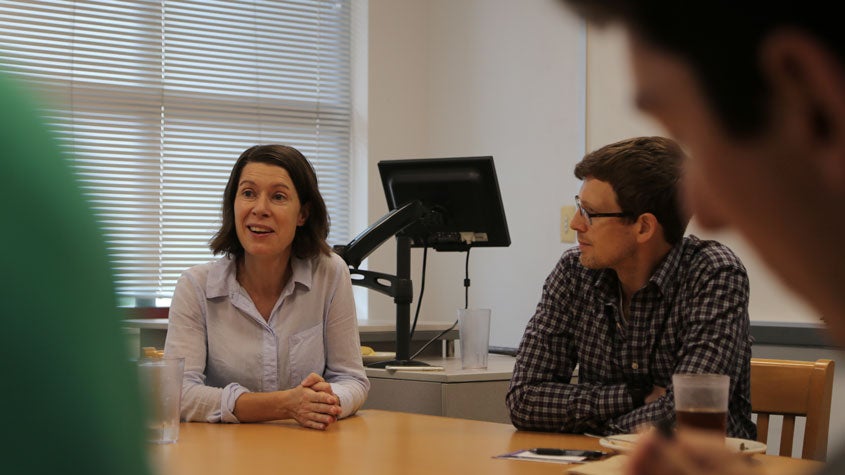For Aristotle, what we call engineering begins as an imitation of nature or a completion of what nature started. But what if nature (with human assistance) is the source of the problem engineering is attempting to solve?
“We will not try to teach you a particular set of ethics or politics," said Elizabeth Brake, professor of philosophy at Rice University. "We want you to ask questions about engineering, its purpose and the impact it has on peoples’ lives. What are the ethical ramifications of the career you are entering?”
With her brother, Matthew Brake, assistant professor of mechanical engineering (MECH), Elizabeth is teaching a new course, MECH 477, “Engineering Ethics.” She joined the Rice faculty this summer after teaching for eight years at Arizona State University.
The topic of the day was natural disasters, hurricanes and, in particular, the impact of Hurricane Harvey on Houston. Nine seniors and a graduate student, all in MECH, are enrolled in the class.
“The idea of the course is for the students to develop tools for making ethical decisions throughout their career. There will be some formal lecturing but the format is discussion-based. Plus, we want them to look at case studies, as in Hurricane Harvey,” Matt said.
“In the academic field of disaster studies,” Elizabeth said, “some argue that there’s no such thing as a natural disaster. How does human behavior effect disasters? What is the state’s role in disaster response? I've written on the importance of place as a reason for the state to help rebuild after disasters.”
She noted that the National Society of Professional Engineers has adopted a “Code of Ethics for Engineers,” and that the first of its “fundamental canons” is “Hold paramount the safety, health, and welfare of the public.”
Topics discussed included rebuilding Puerto Rico after 2017’s Hurricane Maria and the Bahamas after this year’s Hurricane Dorian, federal subsidies for flood insurance and Tokyo’s ambitious flood protection program. The format was loosely Socratic, based on asking pointed questions and soliciting potential solutions.
“How do different cultural values have an impact on our responses to natural disasters? Some cultures, as in the United States, are more individual-oriented. Do we have a responsibility for the public good?” said Elizabeth, who earned her Ph.D. in moral philosophy in 1999 from the University of St. Andrews in Scotland.
One of the MECH seniors, John R. Keogh, asked, “What is included in the public good? Whose good? How do we define that?”
For the next class, students were divided into groups to research Hurricane Harvey’s impact on Houston and subsequent responses to it.
“Have we learned anything? Have policies changed? Are any infrastructure projects in place? Are we better prepared for the next hurricane?” Matt asked.

